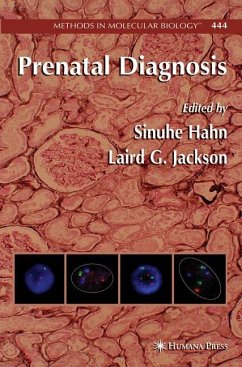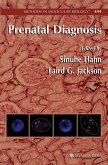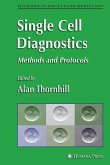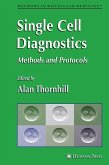Molecular biology has transformed prenatal diagnosis because it permits an accurate diagnosis to be made from very small quantities of fetal material, even single cells. Although the latter permits the analysis of preimplantation embryos and, perhaps in the future, the analysis of fetal cells enriched from maternal blood, a major current focus is to facilitate rapid, cost-effective diagnoses. In this manner, the use of fluorescence in situ hybridization (FISH) or polymerase chain reaction (PCR)-based approaches on uncultured amniocytes or chorionic villi already permits a rapid assessment of the most common fetal aneuploidies (chromosomes 13, 18, 21, X, and Y) to be obtained within 24 h, thereby obviating the need for a 2-week culture period previously required for a traditional karyotype. Although the accuracy of karyotypic analysis is greatly enhanced by methodologies such as spectral karyotyping (SKY) or comp- ative genomic hybridization (CGH), the advent of high-density nucleotide arrays (chips) facilitates rapid assessment of the fetal genotype for a large number of mutations of frequent Mendelian disorders, e. g. , cystic fibrosis, the hemoglobinopathies, and Tay-Sachs syndrome. A further focus is the development of noninvasive, and hence, risk-free alternatives for prenatal diagnosis that no longer rely on invasive procedures such as amniocentesis or chorionic villus sampling. The most successful of these approaches is the analysis of placentally derived cell-free DNA in maternal blood.
From the reviews:
"This comprehensive book describes invasive and noninvasive techniques for diagnosing various chromosomal and genetic disorders prenatally. ... the book was written for molecular biologists and those involved in research in the area of prenatal medicine. ... has a consistent style to convey the information, making each chapter readable and relatable to the previous chapters. ... as a compilation of techniques and a description of the situations in prenatal medicine in which each technique might be useful, this is an excellent and detailed resource." (Gilad A. Gross, Doody's Review Service, August, 2008)
"This comprehensive book describes invasive and noninvasive techniques for diagnosing various chromosomal and genetic disorders prenatally. ... the book was written for molecular biologists and those involved in research in the area of prenatal medicine. ... has a consistent style to convey the information, making each chapter readable and relatable to the previous chapters. ... as a compilation of techniques and a description of the situations in prenatal medicine in which each technique might be useful, this is an excellent and detailed resource." (Gilad A. Gross, Doody's Review Service, August, 2008)








